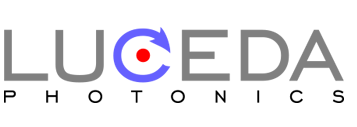|
| |
|
The Photonics Research Group has a strong focus on the applications of photonics. The group is supported by an
IOF Business Development Center NB-Photonics
(formerly IOF Plateau). This leads to a number
of bilateral contracts with photonics companies
in Belgium, Europe and abroad. Besides
supporting companies, the Photonics Research
Group has also established 7 spin-off companies so far. |
|
|
2023 |
 |
Axithra |
In September 2023, researchers from the Photonics Research Group (UGent) & imec,
founded axithra. Axithra develops a technology platform for therapeutic drug monitoring (TDM) to quickly and accurately measure drug concentrations in a patient’s blood. |
|
|
|
|
2018 |
 |
MEEP |
In December 2018, the biotech company MyCartis has announced the addition of a point-of-need
testing technology, ANTELOPE Dx (developed at Ghent University), to complement its immuno-assay technology offering.
In 2022, MEEP re-acquired the Antelope
technology and will continue the development of
the doctor-at-home proposition. |
|
|
|
 |
Sentea |
In
September 2018, researchers from the Photonics Research Group (UGent) & imec,
founded Sentea. Sentea will develop and market advanced silicon photonics based
fiber optic sensing solutions. These will be used to continuously monitor
engineering structures for signs of damages that over time could lead to
catastrophic failure, as well as to control industrial installations to maximize
their efficiency. |
|
|
|
|
2016 |
 |
Indigo Diabetes |
In December 2016, researchers from the Photonics Research Group (UGent), imec, CMST (UGent) & Intec Design (UGent) founded Indigo Diabetes nv (Indigo). Indigo develops the next-gen needle-free glucose sensors for diabetics. Indigo's first product addresses the need for accurate, low-cost glucose monitoring systems with an optimal user experience. |
|
|
|
|
2014 |
 |
Luceda
Photonics |
In June 2014,
researchers from Photonics Research Group (UGent), imec and B-Phot (VUB) founded
Luceda Photonics. Luceda Photonics wants photonic IC engineers to enjoy
the same first-time-right design experience as electronic IC designers. Luceda
Photonics' tools and services are rooted in over 50 years of experience in
photonic integrated circuit (PIC) design. The team's expertise in the
development of process design kits (PDK) and the design and validation of
photonic integrated circuits is used by several research institutes and
industrial R&D teams worldwide. The company was founded by Wim Bogaerts, Erwin
De Baetselier, Pieter Dumon, Martin Fiers, Joris Geessels and Pierre Wahl,
valorizing key research at imec, the Photonics
Research Group of the UGent and the B-Phot team at the
VUB. |
|
|
|
|
2010 |
 |
Caliopa |
In
September 2010, researchers from Photonics Research Group (UGent-imec) founded
Caliopa. Caliopa will develop and market advanced silicon photonics based
optical transceivers for the data and telecommunications markets.
In 2013 Huawei announced its continued investment
expansion into Europe today through its acquisition of Caliopa from Baekeland,
Fidimec, Ghent University, PMV, and other individual shareholders. The
acquisition is part of Huawei's strategy to enhance its European research and
development capabilities, in particular in the silicon photonics-based optical
solutions space. Huawei will integrate Caliopa into its existing R&D centre in
Belgium. The deal, which was completed on 6 August 2013, will give Huawei full
ownership of Caliopa. Caliopa is based in Ghent (Belgium) and will continue its
strong partnership with UGent and imec following this acquisition.
|
|
|
|
|
2006 |
 |
Trinean |
Trinean
is a Belgium based instrumentation company, bringing micro-volume molecular
spectroscopy to the next level by combining best in class analytical software
with a highly standardized read-out platform. Founded in 2006 as a spin-out of
Ghent University, Belgium and Imec Leuven, Belgium, the company commercializes
two instruments, the XposeTM for 'Touch & Go' biomolecule quantification and the
DropSense96TM, analyzing up to 96 samples, using microfluidic chips for
standardized sample analysis (DropPlates and Xpose Slides). The Trinean platform
is complemented with a software toolbox for improved data interpretation and
lab-automation. |
|